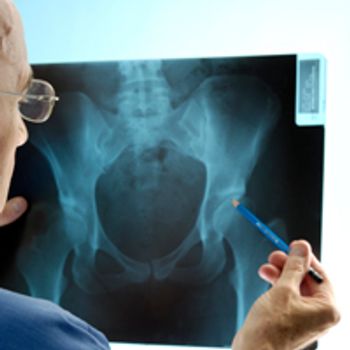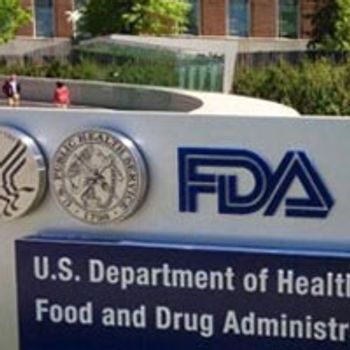
Stressing self care, a Mei Fu developed an online platform for prevention and treatment of lymphedema.

Stressing self care, a Mei Fu developed an online platform for prevention and treatment of lymphedema.

Dr. Clayton Lau, a prostate cancer expert, discusses the options for patients with early-stage prostate cancer and the importance of staying educated on this disease.

The Society for Gynecologic Oncology (SGO) released a toolkit of case studies and resources on genetic testing for healthcare providers, patients, and their families.

Survivorship expert Jennifer Klemp talks about optimal survivorship care, the contents of a survivorship plan, measurement of progress and the financial considerations.

A recent study found an increased risk of dementia for patients with prostate cancer being treated with ADT, and those patients with the highest risk had been treated with ADT for the longest period of time.

Denosumab is not inferior to zoledronic acid for treatment of skeletal-related events (SREs) for patients with multiple myeloma, according to a phase III study.

Pembrolizumab gains an FDA approval for frontline therapy of non-small cell lung cancer (NSCLC).

Erin Kopp, NP, discusses the vital role that supportive care plays in oncology, especially for aggressive diseases such as lymphoma.

A recent study found that many patients do not read prescription drug information, leading to limited recall of risk information.

Judith Paice, an expert on cancer-related pain. discusses what can go into obtaining medical marijuana.

For patients with HR-positive breast cancer, fulvestrant proved to be better for PFS than anastrozole.

Olaratumab (Lartruvo) has been granted an accelerated approval from the FDA for the treatment of patients with advanced soft tissue sarcoma.

Using the COST questionaire (COmprehensive Score for financial Toxicity), researchers believe they can measure and score a patients risk for financial toxicity on a grading system.

Regorafenib was found to improve overall survival by nearly 3 months for patients with previously treated hepatocellular carcinoma.

Immunotherapy agent atezolizumab approved by FDA for treatment of NSCLC.

The HHS announced a new policy for clinical trial registration and results, hoping to increase patient participation and information sharing.



New ASCO guidelines for cervical cancer screening recommend HPV DNA testing.

Deborah Watkins Bruner, RN, PhD, FAAN, discusses the results of a trial comparing quality of life after conventional radiotherapy and after a hypofractionated schedule for men at low-risk for prostate cancer.


Phase III trial results indicate that pembrolizimab reduced risk of death by 40% and improved PFS by 4.3 months for advanced NSCLC.

In a phase III trial, niraparib as maintenance therapy reduced the risk of progression or death by 73% for patients with recurrent ovarian cancer.

Use of PSA tests between 2010 and 2012 at University of Texas Southwestern Medical Center did not significantly change despite the 2012 USPSTF recommendation against PSA screenings.

A recent study shows CDK inhibitor ribociclib reduces progression of HR-positive metastatic breast cancer.

Patients with Medicare are delaying the recommended treatment with TKIs due to the medication's high cost.

Kaufman Cancer Center created an outpatient palliative care program by using resources that were already available inhouse. The Center has been awarded the 2016 ACCC Innovator Award from the Association of Community Cancer Centers for this initiative.

A recent survey found that 77% of working women with breast cancer, including those with metastatic disease, feel that working aids in their recovery.

Genevieve's Helping Hands looks to help make the cancer journey easier to navigate, provide an arm to lean on, and offer encouragement when needed.

The American Breast Cancer Foundation's (ABCF) mission is to provide financial assistance for breast cancer screenings and diagnostic tests for uninsured and underserved individuals, regardless of age or gender.